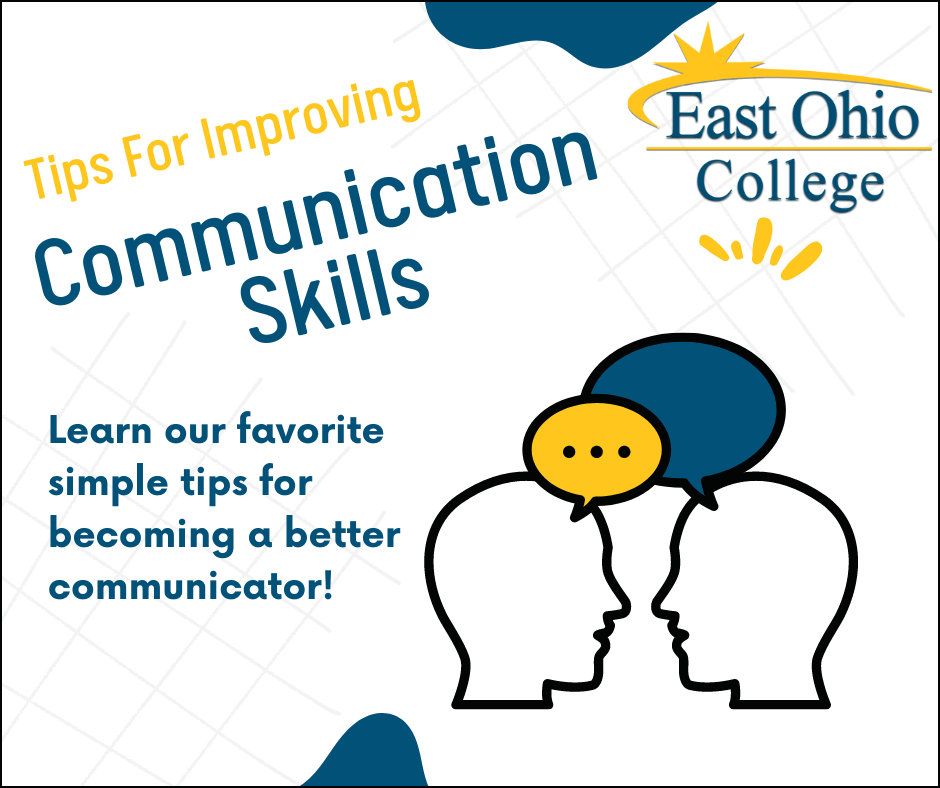
Regardless of your career or educational path, communication is an important part of everyday life. Students and graduates use communication skills during classes, interviews, and in their workplaces. Effective communication is a great soft skill that will help improve both your professional life and personal relationships. Keep reading to learn our top four tips to build your communication skills!
What are the benefits of empathy in communication?
Empathy is a skill that comes naturally to many people, and using empathy when communicating can help you build stronger a connection with the person you’re speaking to. It can be difficult to build a trusting relationship without empathy, so it can be helpful if you can relate to the person you’re speaking with.
Managing your own emotions during conversation is an important part of empathy. Giving unwanted advice or sharing your experiences can come off as overtaking the conversation. Instead, try looking at the situation from a different perspective to try to understand the issue and suggest solutions to solve it.
Why is it important to think before speaking?
Taking the time to process information and think of the best response is a skill that can apply to both in-person communication and virtual communication. Intentional language lets you be clear and concise, so the person you communicate with understands you.
When communicating online, it can be difficult for the person reading your message to understand its meaning, especially since they cannot see your body language. You are improving your communication by taking a moment to formulate and proofread your message for misspellings and grammar issues!
Additionally, filtering your thoughts before speaking when talking face-to-face allows you to pause and think about how the person might interpret your words. Practicing active listening helps you to listen and ask more meaningful questions.
What can you do to improve your listening skills?
Active listening is an important skill that allows you to focus entirely on the person you’re listening to instead of letting your mind wander to a response or argument. Listening is something you do every day, but active listening takes practice. Using this skill can improve your communication in your everyday life!
Another technique that can help you improve your active listening skills is asking open-ended or probing questions. Questions like these require further explanation than a simple yes or no. This shows the person you’re listening to that you are interested in the conversation and that your attention is solely focused on them.
How does body language affect communication?
Body language is a form of nonverbal communication that people sometimes use without being aware of the message they are sending. Crossed arms, frowning, and lack of eye contact can all seem off-putting to the person you’re speaking with. Instead, try making eye contact, smiling, and maintaining good posture throughout the conversation.
A simple handshake can also have a negative effect on the person you’re speaking with. According to this article on LinkedIn, a weak handshake can come off as timid and unsure, but too strong of a handshake can come across as arrogant. Create a positive first impression and build trust by finding a happy medium.
Now you can develop strong communication skills!
By adjusting your everyday communication to include empathy and being mindful of body language, you will become a better listener, clear speaker, and overall better communicator! Practicing these skills with a friend can help you become more confident when it becomes time to use them in a professional setting!
If a school that helps you learn skills like communication is important to you, East Ohio College could be a great fit! Students at East Ohio will receive personalized career and academic support services to assist with developing professional communication. We are here to help you succeed! Get started today by calling 833-EASTOHIO or Request Information.
